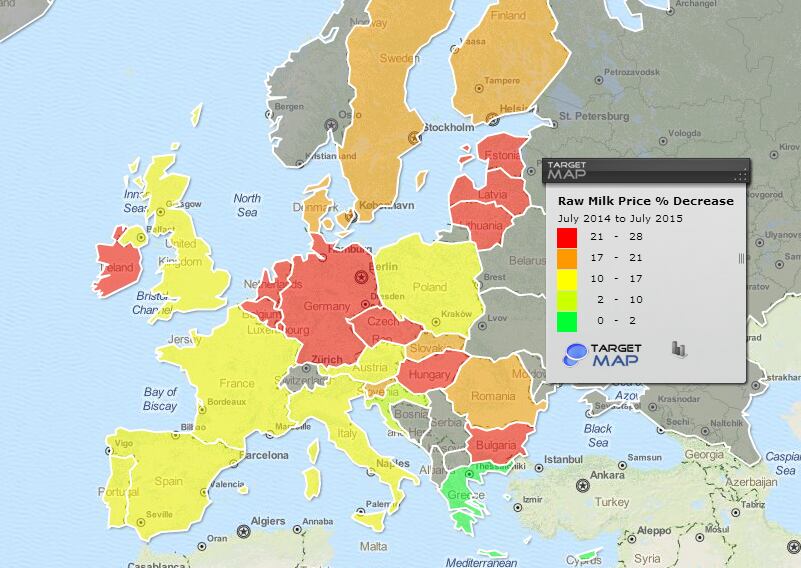Speaking last week at the International Dairy Federation (IDF) World Dairy Summit in Vilnius, Lithuania, Mikhail Mishchenko, editor in chief of Russian website The Dairy News, said Russia is unlikely to lift the ban until after the March 2018 election.
"In my opinion, they will not cancel it until at least 2018," Mishchenko told attendees.
“[This is] because of different reasons," he said, "but the main reason is political because we have an election in this year."
Russian Prime Minister Dmitry Medvedev introduced a one year ban on the import of beef, pork, poultry, fruit, vegetables, milk and dairy products from the European Union (EU), United States, Australia, Canada and Norway in August 2014.
In June 2015, Russia extended its ban on Western food imports until August 5 2016.
Between July 2014 - the month before Russia introduced its ban - and July 2015, the average EU milk price per 100 kilograms of raw milk fell from €36.97 to €29.70.

Last month, the European Commission (EC) pledged €500m to the "address problems" in the dairy and pigmeat sectors.
Of the €500m pledged, €420m will be distributed “in a fair, targeted and effective way” to all 28 EU Member States.
Germany, which was allocated €69.2m, was the largest beneficiary.
Lithuania, Finland, Latvia and Estonia – Member States that received financial aid for their dairy farmers in late 2014 – were allocated €12.6m, €9m, €8.5m and €7.6m respectively.
It also increased Private Storage Aid (PSA) for skimmed milk powder (SMP) by more than 100% and reintroduced PSA for cheese.
At the IDF World Dairy Summit, Joost Korte, the EC's Deputy Director General for Agriculture and Rural Affairs, spoke positively of the support package.
"We hope of course that with our policies - the package of Phil Hogan - and the measures that are there, we can put a floor in the market so that the competitive farmers who are the future will survive," he said.
“We also see a number of positive signals," he added. "There is definitely much better results from the Global Dairy Trade auction – in the last three we basically saw that prices are increasing worldwide. Dairy quotations are going up as well, and there is an increase in the spot milk prices.”
During his presentation, Korte also revealed that Brussels is working on measures to combat low retail milk prices across Europe.
